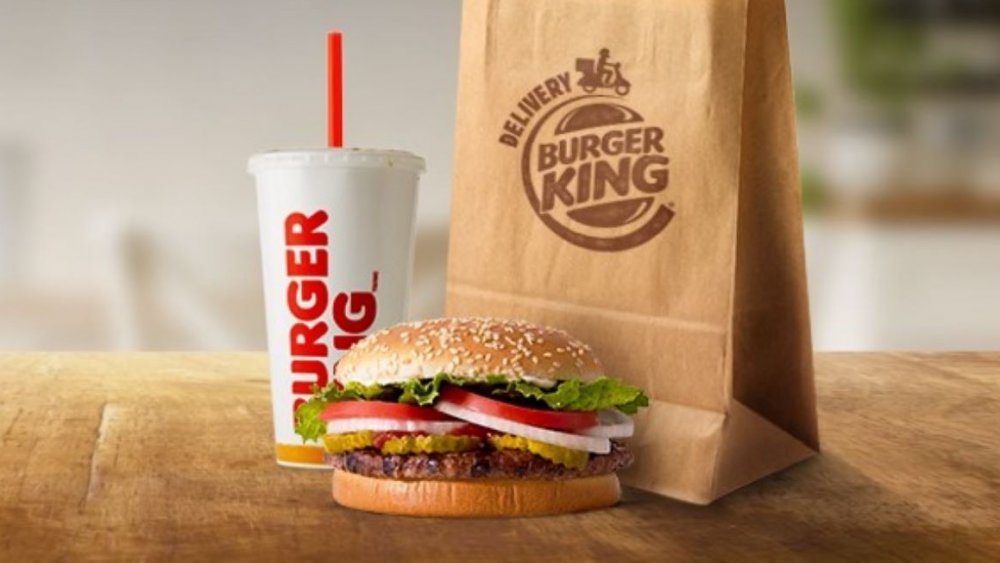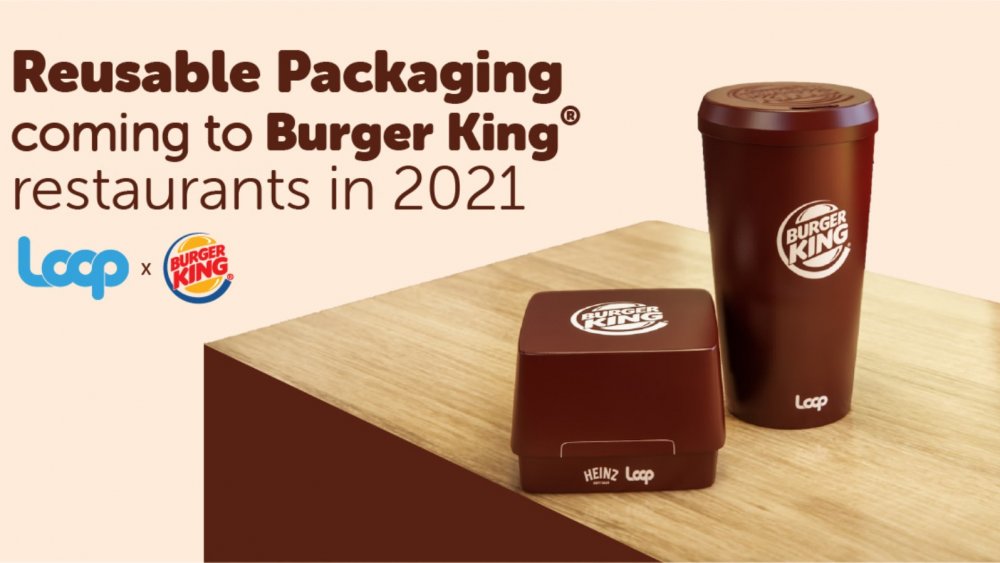A Big Change Is Coming To Burger King's Packaging
Recently, Burger King announced that in the latter half of 2021 it will introduce reusable packaging for its sandwiches and sodas to reduce waste. Reuters reported that the restaurant envisions its customers paying a deposit for their containers and cups, which they will then have refunded once they scan the packaging via an app and return the containers. The project will initially play out in Tokyo, New York City, and Portland, Oregon.
Just last month, McDonald's revealed it would be conducting a similar experiment in the UK with coffee cups. As Fast Company explained, customers will have the choice to deposit their reusable cup immediately in the store, return it at a different time, or drop it off at a separate recycling point where the cups will be brought to a facility to be "individually sterilized and hygienically sealed before they're sent back to the restaurant." Business Insider notes that this is a different approach than the one taken by Starbucks and Dunkin', in that the coffee companies sell reusable cups to their patrons to keep and clean themselves, while the burger joints will treat their cups as rentals.
Burger King is in the loop
How Burger King and McDonald's get on with their experiment is a matter of waiting and seeing. However, it is worth noting that both of them collaborated with the same company to produce their vision behind the practice: TerraCycle's Loop initiative. A CNN profile on the Loop project outlines the premise of Loop's model. Online customers buy a product for a price comparable to the same one they would find in the store, and then also pay a fully refundable deposit on that item, the amount of which depends on the particular product. The ordered items arrive in a tote bag and as they are used, their empty packaging goes back into the tote bag which UPS picks up and delivers back to Loop. Then the customer can choose to go through the cycle again or opt out.
In terms of Loop's application in Burger King and McDonald's restaurants, the initiative will certainly go a good distance toward both chain's sustainability goals, but may be more of a greenwashing attempt than actual corporate change. While both companies are tentatively adding meat free options to their menus, the livestock farming that forms their bottom line is, as explained by The Guardian, a leading cause of environmentally harmful things such as deforestation, water pollution, and greenhouse gas emissions. We'd bet that's likely an equal challenge — if not a bigger threat — than their packaging.

